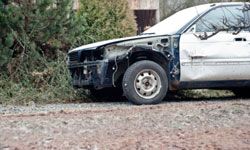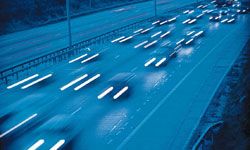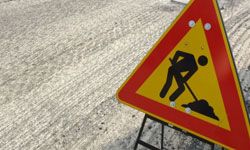Too late, you see it: the hood of a highway patrol car parked in the roadside bushes. Or perhaps it's a black and white motorcycle nestled behind a billboard, or a lone figure standing on the shoulder with a radar gun. You stand on your brakes, hoping you're sudden change in speed isn't too obvious. But you know you've been caught.
Nothing saps the fun from a road trip like being pulled over. Driving the speed limit is certainly the best way to avoid traffic tickets and stay safe, but many of us occasionally fall victim to the lead foot, the speed trap or the odd local ordinance violated in ignorance.
Advertisement
How can you avoid tickets on the road?





